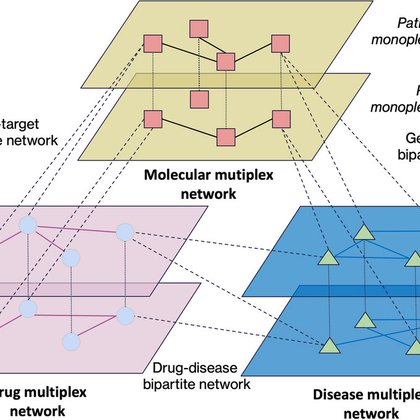
Léo PioLopez
@LPiolopez
Followers
323
Following
34
Media
0
Statuses
13
Complex systems, embodied cognition, AI, networks
Joined January 2021
Given the recent discussion about aging (and our approach to it) in https://t.co/k0jwH9wPB3, it might be worthwhile to mention that my perspective is: birth defects, failure to regenerate complex organs after damage, cancer, degenerative disease, and aging are all *the same
Final version is out: aging as the result of loss of goal-directedness https://t.co/gqgBvEKx2U
@BeneHartl @LPiolopez "Although substantial advancements are made in manipulating lifespan in model organisms, the fundamental mechanisms driving aging remain elusive. No
60
129
878
Final version is out: aging as the result of loss of goal-directedness https://t.co/gqgBvEKx2U
@BeneHartl @LPiolopez "Although substantial advancements are made in manipulating lifespan in model organisms, the fundamental mechanisms driving aging remain elusive. No
167
423
3K
New #preprint - @BeneHartl @LPiolopez
https://t.co/OTC3cLq0BY "Neural cellular automata: applications to biology and beyond classical AI"
arxiv.org
Neural Cellular Automata (NCA) represent a powerful framework for modeling biological self-organization, extending classical rule-based systems with trainable, differentiable (or evolvable) update...
17
66
363
Final version of this paper with @AMPietak is now out: https://t.co/gezYXdVGF3 "Harnessing the analog computing power of regulatory networks with the Regulatory Network Machine" Abstract: gene regulatory networks (GRNs) are critically important for efforts in biomedicine and
10
39
221
New paper with @BeneHartl : 'What does evolution make? Learning in living lineages and machines" https://t.co/dT1AKjAyQU Genes code for proteins, but what is the relationship between the genome and the large-scale form and function of organisms? What is a good formalism for
18
91
368
Official version of this paper with @LPiolopez is out: https://t.co/l4RwfOTIGw Universal multilayer network embedding bioinformatics method, and validation data in frog model (relevant to cancer)
link.springer.com
Background The volume and complexity of biological data have significantly increased in recent years, often represented as network models continue to increase at a rapid pace. However, drug discovery...
4
29
159
Next up, @LPiolopez and a remarkable finding about #aging. Preprint here: https://t.co/j7GAKGD37a Atavistic Genetic Expression Dissociation (AGED) during aging: meta-phylostratigraphic evidence of cellular- and tissue-levels phylogenetic dissociation Abstract: "Aging is
osf.io
Aging is commonly attributed to accumulated damage, or evolved antagonistic genetic trade-offs, which lead to an accumulation of genetic damage, noise, or DNA methylation causing the misexpression of...
31
56
274
New preprint is up! https://t.co/iqZsopcGBw
@LPiolopez, @JojoBischof, Jennifer V. LaPalme "The scaling of goals via homeostasis: an evolutionary simulation, experiment, and analysis" #Alife #BasalCognition #VirtualEmbryogeny I've been floating a theory of how homeostatic
6
40
119
Official version is out: https://t.co/yCSsLEHwK8
@LPiolopez @FranzKuchling @GiovanniPezzulo Angela Tung "Active inference, morphogenesis, and computational psychiatry"
5
19
99
Next, in a series of preprints and papers getting over the finish line at end-of year: https://t.co/chzR294JDC with @LPiolopez: "Morphoceuticals: perspectives for discovery of drugs targeting anatomical control mechanisms in regenerative medicine, cancer, and aging"
6
22
100
1/n Very excited to put this paper out in the world! Does reduction always lead to a gain in information? Turns out: no. @ThosVarley and I show macroscales can convert information (making info more synergistic), and reduction can lead to a loss of info https://t.co/VOkKMqIDXx
4
19
62
One reason, btw, that I'm so excited about this paper is that I think it represents the most fundamental leap forward in my thinking about emergence and reduction since the "Quantifying causal emergence" paper in 2013
1/n Very excited to put this paper out in the world! Does reduction always lead to a gain in information? Turns out: no. @ThosVarley and I show macroscales can convert information (making info more synergistic), and reduction can lead to a loss of info https://t.co/VOkKMqIDXx
0
2
12
#Bioinformatics #AI: researchers have developed a multiplex-heterogeneous network embedding framework to facilitate the analysis of complex interactions in dynamic networks. The framework could be used to predict gene-disease and drug-target interactions - https://t.co/ziFk0SAjND
0
10
12




